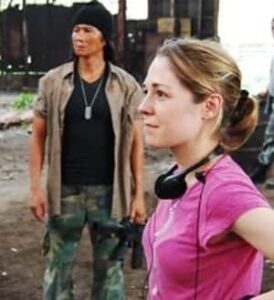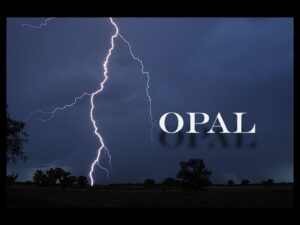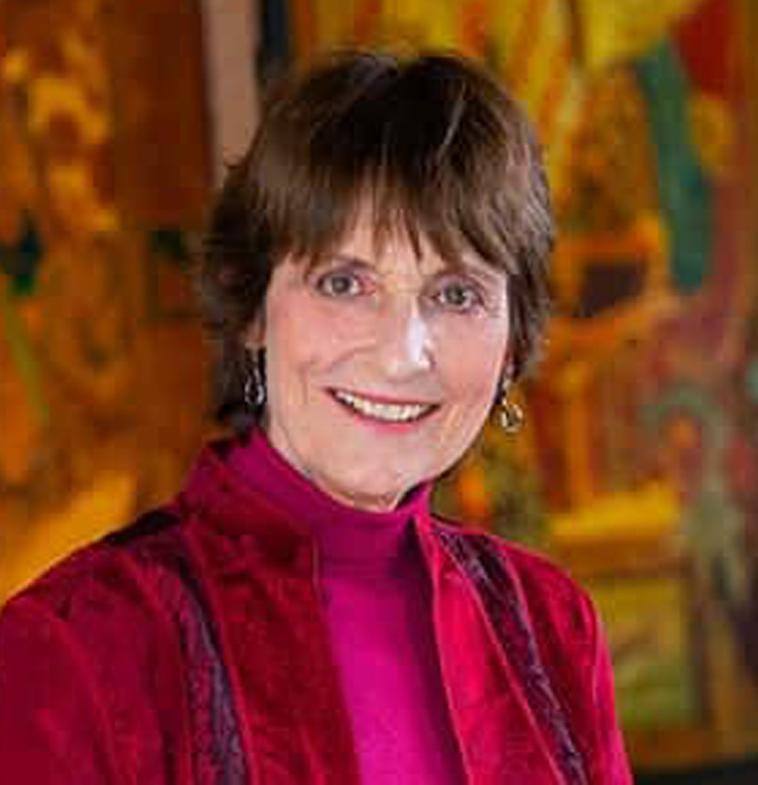
Barclay DeVeau is sounding the alarm that women are being hidden under gender bias in all facets of the movie business, where they struggle to get funding to get their voices heard, their images seen and their stories told. Barclay grew up in the business as a child actress on the Broadway stage and in movies, backed by a generous and supportive mother and grandmother, and mentored by famous directors. She calls her childhood magical and the magic didn’t wear off until she found herself one of a small handful of women students in USC’s School of Cinematic Arts. Even then she continued to be successful after graduation. She won awards (including Emmys), steadily worked in film and television production as a director, writer and producer, and easily received funding for more than 20 years. Then she combined women’s advocacy with her story-telling to pitch her first feature-length movie script: a story with a woman in her 50’s positioned as the lead character to show what a powerful, determined woman can do when she challenges the people of a small Southern town. Her long-time investors (all men), who have received good returns on their investments from Barclay’s project for 20 years, refused to back this movie. In fact, Barclay says they even refused to read the script.
Women in Movies by the Numbers
If you haven’t noticed that fewer women than men are shown in the movies, it could be because audiences actually watch more movies starring women. When women are in lead roles, ticket sales increase, making those movies more profitable. However, Barclay says there is a well-known Hollywood myth that denies this fact. And in a world where fiction rules, that story is the one that keeps women hidden under decades of gender bias. Geena Davis Institute on Gender in Media, seejane.org, was founded shortly after “Thelma and Louise” was released and achieved such outstanding success. At the time (1991), the headlines read, “This Changes Everything.” In fact, Geena just released a documentary by the same name to show how it did not change a thing.
Barclay quotes The Institute report from 2018 showing where women stand today:
- 7% of directors are women
- 13% of writers
- 20% of producers
Even the children are misrepresented. If you believe the images on the screen, the population consists of 3 boys to every girl. This number hasn’t moved since the 1950’s. As Geena Davis says, “If she can see it, she can be it.” Not showing girls and women in their realistic numbers and roles prevents girls and women from realizing their potential. Barclay says this needs to stop. Women and girls need to go wherever their talents lead them. Her women’s organization, Persist NYC, which she formed in early 2017, brings together strong women of all ages and across all sectors who share the desire to support and elevate other women and bring attention to vitally important women’s issues.
The Making of “OPAL”
 Barclay feels that the time for “OPAL” is now—because women are speaking out around the world about parts of their lives that they have kept silent for a very long time. Righting wrongs is women’s work. And Barclay is taking it on through her story of female empowerment where a reclusive older woman challenges the past and present wrongs of a town. She says the story parallels what is happening in the country and speaks to the struggles of women against the systems that harm them and hold them back. It’s ironic that the making of “OPAL” seems to be running parallel to Barclay’s own struggles to tell the story. But she says that she is just as determined to tell the story as her lead character is to expose the horrible underbelly of the town she lives in.
Barclay feels that the time for “OPAL” is now—because women are speaking out around the world about parts of their lives that they have kept silent for a very long time. Righting wrongs is women’s work. And Barclay is taking it on through her story of female empowerment where a reclusive older woman challenges the past and present wrongs of a town. She says the story parallels what is happening in the country and speaks to the struggles of women against the systems that harm them and hold them back. It’s ironic that the making of “OPAL” seems to be running parallel to Barclay’s own struggles to tell the story. But she says that she is just as determined to tell the story as her lead character is to expose the horrible underbelly of the town she lives in.
Women Are Able to Speak Out in the Movies
Listen to this interview to find out more about the history of the movie business (women actually ran studios in the beginning) and Barclay’s personal history, her famous mentors and inspiration for creating magic with movies. She is not deterred by this current setback, only more determined to go forward. She calls “OPAL” a Southern Gothic Thriller– “Thelma and Louise” verses “Dirty Harry,” and is just starting her fundraising effort to make it a reality. To find out more, contact Barclay directly at [email protected]. This is the time for women to really reach out and help other women get their voices heard in the movies.

